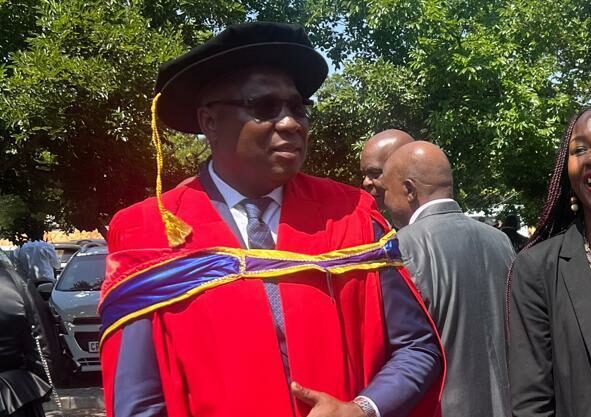Has it ever crossed your mind how religion – any branch of religion – naturally coincides with all the precepts of knowledge, and that each discipline (religion and education), contributes to the well-being of society?
The one is slave to the other, and each depends on the other for its existence, and each has a symbiotic relationship with the other, and the two can in truth, never be separated.
For complete success to be realised the two – education and religion – must be pursued with equal vigour, whatever religion one subscribes to – be it Christianity, Islam, Judaism, African spirituality or any other religion.
But my point is that wisdom comes from God, and we should at all times seek wisdom through education without which learning is impossible because education and religion are in a symbiotic relationship.
Religion and education are about differentiating between right and wrong, to know, for example, that littering is bad for the environment. We must be able to say to those who litter: “This is wrong, don’t do it.” The bottom line is that we all believe in something which is a product of learning, and so by extension we are amenable to assimilate concepts that are life-giving.
I do not confine religion to Christianity. This, in fact, is not the summation of my teachings. The concept of religion is all-embracing, and so refers to all religions of the world.
To get to the nub of the matter, in my area of study and expertise, which is education and Christian counselling psychology, I place great emphasis on the two concepts. I maintain that success brings happiness but changing people’s lives brings fulfilment.
While it is self-evident that success brings happiness and that successful people are content, the other important truth is that those whose mission it is to transform other people’s life through education and religion, derive fulfilment in doing so. To bring changes, and to help others see the light when darkness is pervasive, is surely a noble cause.
My talks are mainly focused on development of human capacity to empower, to inform and to educate. Communities endowed with such attributes tend to be successful and develop positive attitudes. Wherever I give talks or lectures, I underscore that my greatest desire is to see people educated correctly because I know from experience that this often leads to success.
I wish to also state that many people are concerned about what it might mean to lead a lifestyle that enhances the total well-being of a person. My answer without equivocation is don’t feed your body with junk food and expect to be healthy.
The point is that if we all ought to care about the well-being of our bodies, we need to strive to feed them with food that is close to nature, which is organic – chemical-free food.
Embracing an organic food lifestyle helps ward off diseases, and this is what my talks are about. An apple a day keeps a doctor away. So, as you can see, in the end it is education and religion that serve as catalysts to empower people with knowledge that can be put to good use to enhance healthy lifestyles.
In the final analysis, I come back to one thing: all of these things I have described are only possible if we are imbued with education – formal and informal – and critical thinking, and knowing that everything is possible with the help of God.
- Khumalo is the leader of Truth Covenant Church, Midrand, and holds a PhD in education and Christian counselling psychology
Follow @SundayWorldZA on Twitter and @sundayworldza on Instagram, or like our Facebook Page, Sunday World, by clicking here for the latest breaking news in South Africa. To Subscribe to Sunday World, click here.



